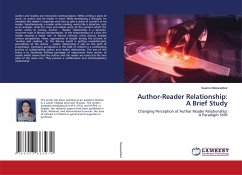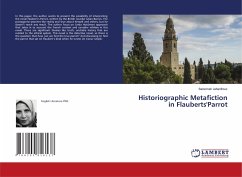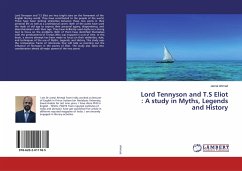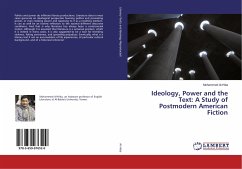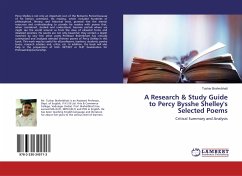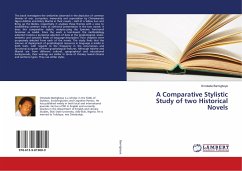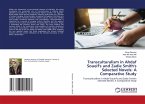Author and readers are interactive communicators. While writing a piece of work, an author has his reader in mind. While developing a thought, he visualizes the reader's responses and tries to give a sense of content to his reader. Simultaneously, a reader while reading, works like a detective, acts as an analyser, looks for clues and makes sense of the content which the writer wants to convey. Author - Reader relationship is a dynamic, recurrent topic in literary interpretation. In the interpretation of a text, the reader assumes a major role. In literary criticism, critics discuss, analyse various perspectives, views, approaches at length during the process of 'writing and reading'. As the literary world is getting revolutionized, perceptions of the author - reader relationship is also on the path of progression. Changing perceptions in the field of criticism is a culminating process of collaborating author and reader relationship. The aim of this thesis is to illuminate shifting paradigm of importance from author to reader which shows that the author and the reader are none but the two sides of the same coin. They present a collaborative and interdisciplinary relationship.
Author and readers are interactive communicators. While writing a piece of work, an author has his reader in mind. While developing a thought, he visualizes the reader's responses and tries to give a sense of content to his reader. Simultaneously, a reader while reading, works like a detective, acts as an analyser, looks for clues and makes sense of the content which the writer wants to convey. Author - Reader relationship is a dynamic, recurrent topic in literary interpretation. In the interpretation of a text, the reader assumes a major role. In literary criticism, critics discuss, analyse various perspectives, views, approaches at length during the process of 'writing and reading'. As the literary world is getting revolutionized, perceptions of the author - reader relationship is also on the path of progression. Changing perceptions in the field of criticism is a culminating process of collaborating author and reader relationship. The aim of this thesis is to illuminate shifting paradigm of importance from author to reader which shows that the author and the reader are none but the two sides of the same coin. They present a collaborative and interdisciplinary relationship.
Hinweis: Dieser Artikel kann nur an eine deutsche Lieferadresse ausgeliefert werden.
Author and readers are interactive communicators. While writing a piece of work, an author has his reader in mind. While developing a thought, he visualizes the reader's responses and tries to give a sense of content to his reader. Simultaneously, a reader while reading, works like a detective, acts as an analyser, looks for clues and makes sense of the content which the writer wants to convey. Author - Reader relationship is a dynamic, recurrent topic in literary interpretation. In the interpretation of a text, the reader assumes a major role. In literary criticism, critics discuss, analyse various perspectives, views, approaches at length during the process of 'writing and reading'. As the literary world is getting revolutionized, perceptions of the author - reader relationship is also on the path of progression. Changing perceptions in the field of criticism is a culminating process of collaborating author and reader relationship. The aim of this thesis is to illuminate shifting paradigm of importance from author to reader which shows that the author and the reader are none but the two sides of the same coin. They present a collaborative and interdisciplinary relationship.
Hinweis: Dieser Artikel kann nur an eine deutsche Lieferadresse ausgeliefert werden.

